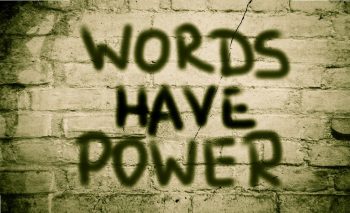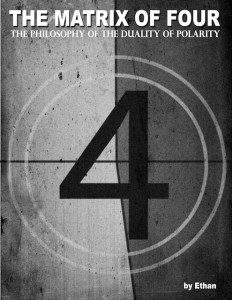Contributing writer for Wake Up World
“The power of language to influence thought makes vocabulary building a critical part of education. To expand language is to expand the ability to think.” – Paul Lenda
The title and concept of this article is based on the Duality of Polarity. It might go unnoticed to many, even those who use it, but here it is once again: the Duality of Polarity, a meta-philosophy that can help us reveal and inspire our individual and collective consciousness. Based on the widely-accepted premise that there are four aspects of reality, the Duality of Polarity is seen in the four seasons (winter, spring, summer and fall), the four directions (north, south, east and west), the four types of arithmetic (addition, subtraction, multiplication and division), and importantly, in the four modes of critical thinking, which ask: Is it so, is it not so, is it neither, or is it both?
[pro_ad_display_adzone id=”110028″]
Understanding the duality/polarity principle can provide a formula from which one can better understand the nuances of human behavior and experiences of all sorts. In this case — a discussion of frequently used negative words and infrequently used positive words — there are two polarities at play: positive/negative words that are frequently/infrequently used. Let’s examine the polarity of positive and negative words: language that limits us, and language that empowers us.
Words That Limit
“The limits of my language are the limits of my world.” — Ludwig Wittgenstein
Whenever writing I try to use the word ‘I’ as little as possible in order to place importance on the content, not on yours truly. This is something we have collectively lost perspective on. In today’s world we collectively and institutionally pay homage to celebrity status, glamorizing folks who are all ‘I’ and of little, if any, real substance. We place importance on who said it, not what was said. Indeed, in the postmodern world we exalt the hollow ‘I’ and the inauthentic content it represents, and as a result, fewer and fewer people read and contemplate beyond the immediate periphery of the ‘I’.
When it comes to valuing the selfish ‘I’ perspective over that of truth, one of the worst words we can use is ‘I’, and with it, of course, ‘me.’ Instead, break down the facts, not opinion. Break down the reality of life, not simply the selfish ‘I’ perspective of what you think/feel/heard/believe/know.
One of the other worst words to use frequently is specific to the English language and more particularly, to the vernacular of the United States. It is a simple, little word — ‘get’ — but because of the depth of ignorance in the ‘I’ culture, it is a commonly used word that few English speakers in the U.S. can define despite how often it is uttered.
We use ‘get’ in many different manners, but it is essentially basic baby talk reserved for the selfish pursuit of obtaining. However this article does not seek to define what ‘get’ means. If you need clarification on its meaning and its many uses, I encourage you to first consider how you could use this word so often and still be unconscious of its meaning, then research its application and reconsider its use.
Then consider the two words ‘I’ and ‘get’ in combination. The very worst of all sentences in the English language contains these two trifling words, ‘I get…’ Sure, sometimes there is no way around it, but when writing I actively try to eliminate using these two basic words so as not to limit myself to basic thought structures like my own perspective or the pursuit of acquiring.
Words That Empower
“Think lightly of yourself and deeply of the world.” — Miyamoto Musashi, A Book of Five Rings: The Classic Guide to Strategy
The best and least frequently used words are also simple little words which impart great meaning and force. ‘No’ closely followed by its contrast ‘yes’ are among the greatest and most significant words that are simply not used often enough in our culture today. Each are powerful and authentic in their own right, however in a postmodern cesspool of a society in which institutions continue encroaching on the rights of individuals, ‘no’ is particularly powerful and clear. When enough people declare ‘no’, our situations can shift, revolutions take root, and circumstances for humanity can be bettered.
Think about the strength it takes to say ‘no’ instead of ‘yes.’ There are no heroic yes-men. ‘No’ requires conviction and strength, not apathy.
The other most treasured word in all of humanity’s history — which has recently been scorned by the ‘I’ minds and ‘me’ motivations of today, as well as the ‘get’ selfishness — is the wonderful word ‘why.’ ‘Why’ is the very best, most powerful word that is too infrequently uttered by all of humanity today, and conversely, is most frequently made taboo.
‘Why’ was once the most celebrated of all words, used by scientists and philosophers and politicians alike — when we were in a non-traumatized state. But today, in the post 9/11 world, where societal trauma is so constant and immersive, ‘why’ has systematically become taboo. ‘Why?’, do you ask? (Good!) Because ‘Why?’ contradicts the mode of thinking that says “You are either with us or you are against us” — a statement that limits thinking to a single polarity and ignores that, when it comes to complex human behaviors and experiences, the truth may not always be found in the ‘I’ experience of an either/or polarity, but in the ‘why’, and the grey areas of neither and both.
Let use less ‘I’s and ‘Get’s, and more ‘No’s and ‘Why’s.
“Empower yourself beyond your present limitations, if they exist, and expand your awareness beyond the hindering boundaries of the lexicon of language. … You have nothing to lose and everything to gain.” – Paul Lenda
The Matrix of Four: The Philosophy of the Duality of Polarity
Ethan Indigo Smith’s book, Matrix of Four, is an exploration of our consciousness, and presents a formula to develop our consciousness and surpass the limitations of traditional political and social constructs. It relates and explains correlations between the four seasons, Om and a myriad of esoteric and exoteric ideas on consciousness to inspire creative thinking and being. He also explores mathematical and philosophical concepts to engage a higher thinking and being, verified using universality and human traditions beginning with the four operations of arithmetic, referencing the four archetypal characters in Plato’s The Allegory of the Cave, and much more.
Matrix of Four: the Philosophy of the Duality of Polarity is available here on Amazon.
About the author:
Activist, author and Tai Chi teacher Ethan Indigo Smith was born on a farm in Maine and lived in Manhattan for a number of years before migrating west to Mendocino, California. Ethan’s work is both deeply connected and extremely insightful, blending philosophy, politics, activism, spirituality, meditation and a unique sense of humor.
You can connect with Ethan on Facebook, check out his author page on Amazon, or visit his websites, Geometry Of Energy and Meditation 108, where Ethan offers lessons on individuation, meditation, the conceptualization of energy, and the metaphysical significance of 108.
Ethan’s books include:
- The Geometry of Energy: How to Meditate: Simple and profound, this book offers an empowering four-step meditation, focused through the sacred dimensions of geometry.
- The Little Green Book of Revolution an inspirational book based on ideas of peaceful revolution, historical activism and caring for the Earth like Native Americans.
- Meditation and Geometry for The Youth: A short and sweet book to introduce young people to meditation and sacred geometry, in a simple format for the youth and youthful alike.
- 108 Steps to Be In The Zone, a set of 108 meditative practices for self discovery and individual betterment, including techniques to develop balance, transmute sexual energy.
Recommended articles by Ethan Indigo Smith:
- Tibetan Rites of Rejuvenation: a Guide to Meditation and Breath
- Understanding Ascension: The Geometry of Energy
- The Mandala: The Sacred Geometry of Meditation
- The Common Origins of Religions and Theology
- Aum Mani Padme Hum: The Integration of Duality and Polarity
- Guardians of the Earth Unite! American Indian Prophecy, The Medicine Wheel, and The Four Sacred Directions
- The Spiritual Golden Rule
- Meditation Comprehension for the Youth
- Meditation 108: A Guide to Meditating for the Infant Practitioner
- Walls and Wars – Overcoming the Instincts of Hive Consciousness
[pro_ad_display_adzone id=”110027″]









